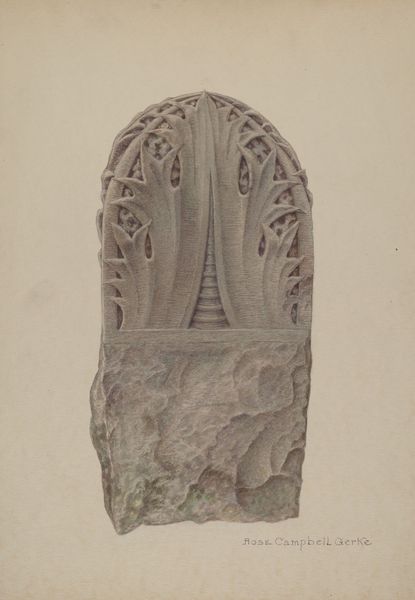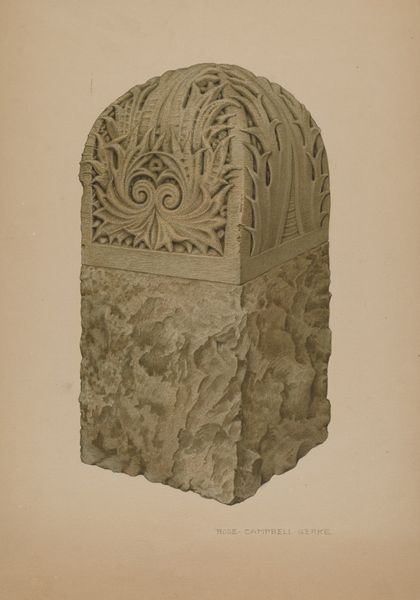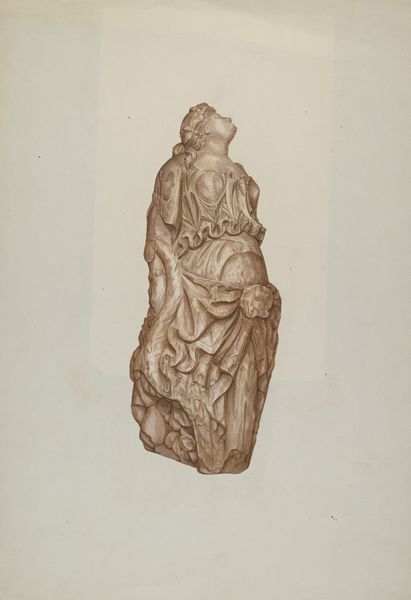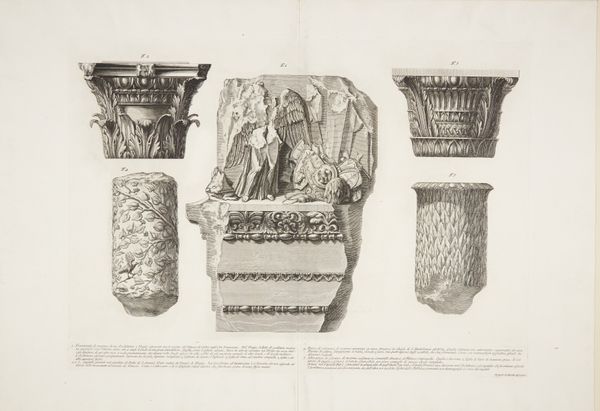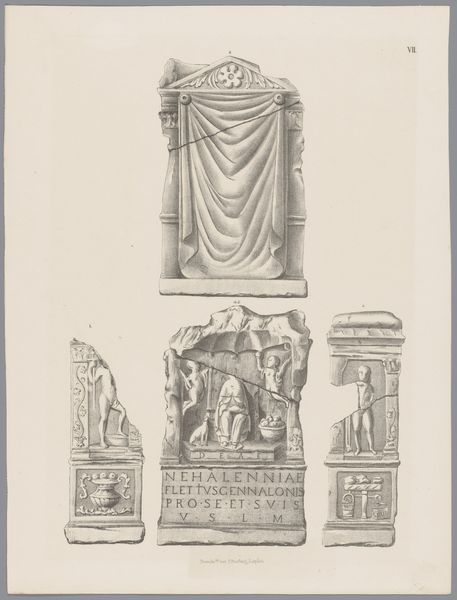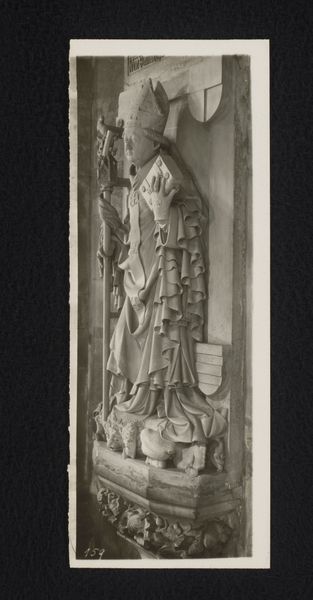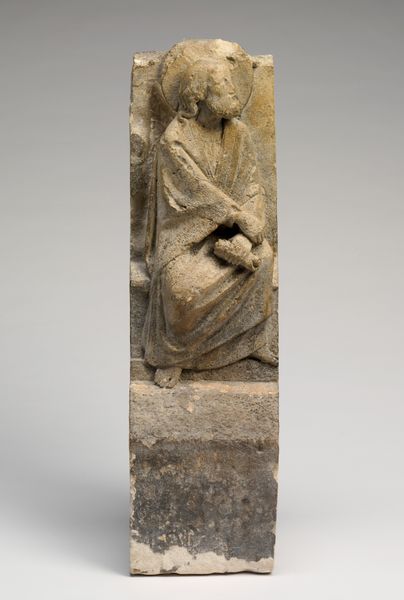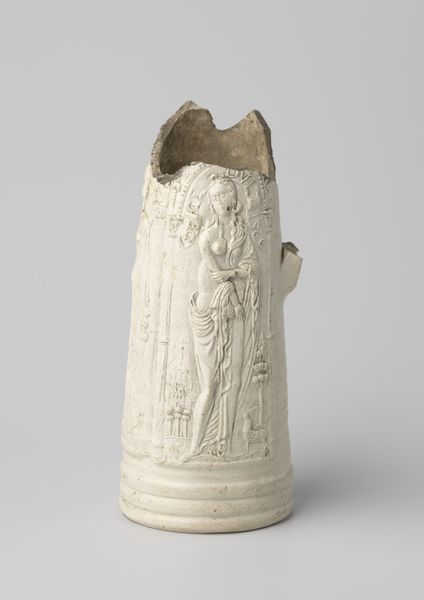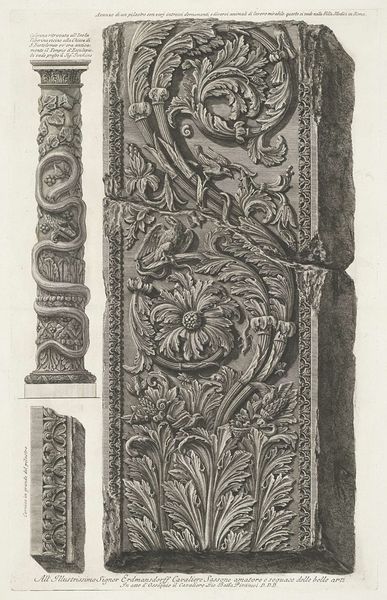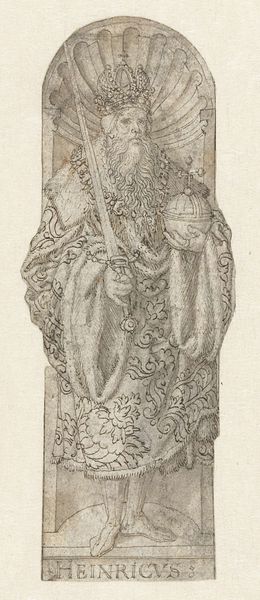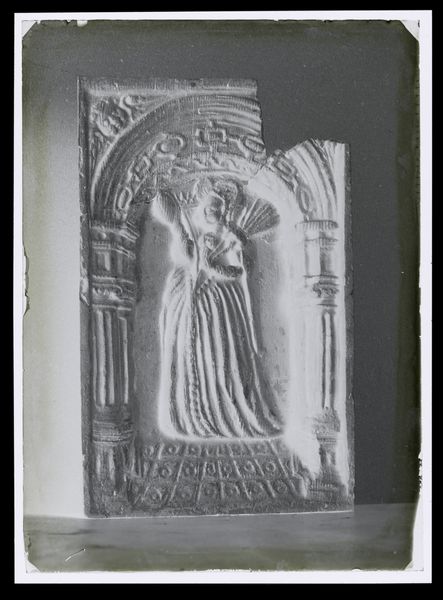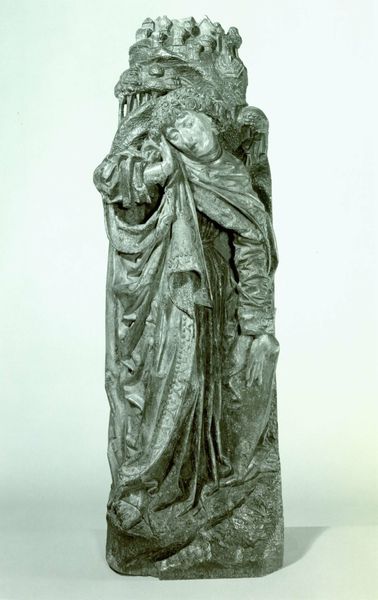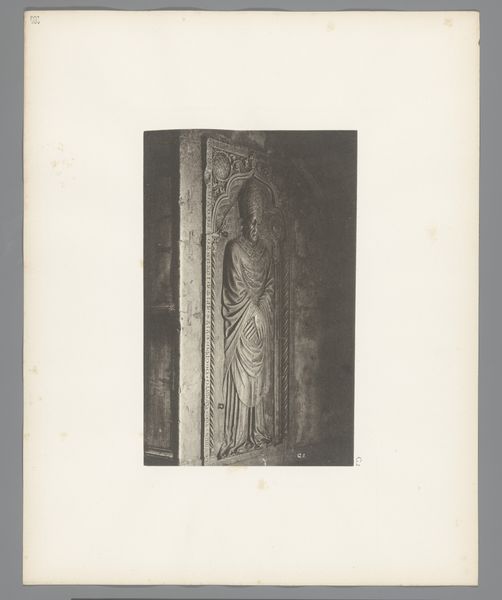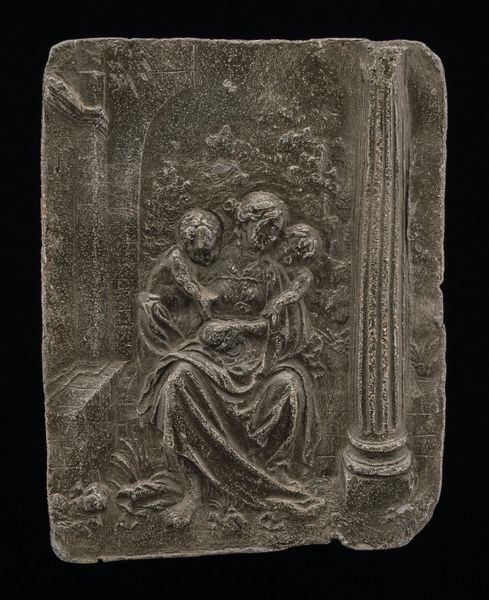
drawing, carving, sculpture, charcoal
#
drawing
#
carving
#
sculpture
#
charcoal drawing
#
form
#
geometric
#
sculpture
#
charcoal
#
charcoal
Dimensions: overall: 35.7 x 24.4 cm (14 1/16 x 9 5/8 in.)
Copyright: National Gallery of Art: CC0 1.0
Editor: We're looking at Rose Campbell-Gerke's "Stone Gate Post," from around 1939, which seems to be rendered in charcoal and possibly depicts a sculpture. It strikes me as a study in contrasts – the rough, unfinished base against the ornate carving on top. What are your initial thoughts about this work? Curator: The division is immediately striking. One might deconstruct it by examining the stark contrast between the textured, almost raw materiality of the base and the calculated, almost effervescent floral carvings that surmount it. The geometric architecture implied in its structure finds playful juxtaposition within the soft carving motifs. Editor: So you see it as a dialogue between two distinct artistic intentions? How does the medium contribute to that reading? Curator: Precisely. Note how the charcoal medium is used. On the lower register, its application conveys the mass and tactility of roughly hewn stone, whereas it offers a sense of airy lightness above. The lines become lacework, further emphasizing the textural contrast and the play between solidity and permeability. Is there something specific that draws you to it? Editor: I appreciate how the artist uses line to differentiate form, yet also create a sense of continuity, particularly in the spiraling designs. Is this tension something the artist often explores? Curator: It would necessitate further investigation into Campbell-Gerke’s oeuvre to state that definitively. However, consider that the upward spiral—found repeated atop—implies growth and ascension. Conversely, the cube itself serves as grounding, suggesting a deliberate discourse regarding permanence and mutability. Editor: This gives me a richer understanding of the interplay between form and material within the artwork. Curator: Indeed. Formal analysis brings awareness to these critical qualities and allows us access into how art functions as art, as well as culturally and historically.
Comments
No comments
Be the first to comment and join the conversation on the ultimate creative platform.
